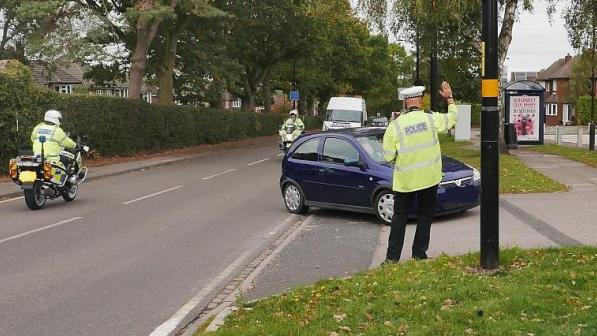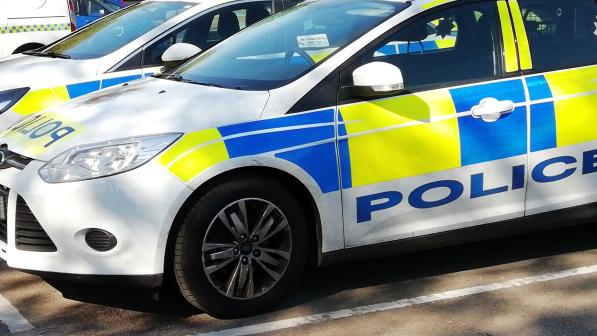Clearing the mist from road policing

Do we all know what our police forces are doing to make road conditions safer for everyone?
Can we clearly track collision investigations through to the justice system?
Is it easy to tell how effective our local roads policing is?
How can we make it more likely that the answers to each of these questions will be a ‘yes’ in future? By urging our Police and Crime Commissioner (PCC) candidates to sign up to the five asks of Action Vision Zero’s manifesto, one of which focuses on a commitment to clear away the mist from roads policing and become transparent and accountable about it instead.
The manifesto invites PCCs to:
1. Publish enforcement activity statistics
Statistics on enforcement activity aren’t a complete enigma because the Home Office and the Ministry of Justice both publish them.
The problem is that there’s always a long wait for the latest batch and, when it does eventually arrive, it’s not nearly detailed enough to gather much insight into enforcement in local areas.
Police and Crime Commissioners (PCCs) could make a huge difference here by publishing timely and robust data on the offences their officers detect through, for example, close pass activities, Community SpeedWatch and video evidence submission portals such as Operation SNAP in Wales.
All these initiatives benefit the most vulnerable road users: being overtaken too closely is hazardous and intimidating for cyclists; numerous communities suffer from speeding (another point on Action Vision Zero’s manifesto, which I’ve blogged about too); and, given their frustrating experiences, it’s only right that helmet or handlebar-cam users can dig into how seriously their force pursues video evidence of bad driving and, if it’s not serious enough, to take them to task for it.
But try to hunt down detailed data on road traffic law enforcement activity near you and, chances are, it won’t be at all easy.
2. Publish a roads policing strategy/plan
To be fair, some PCCs do publish roads policing strategies, and Action Vision Zero mentions Devon & Cornwall and West Mercia as examples of good practice, along with Transport for London/the Met’s ‘Vision Zero Action Plan’, and Cambridgeshire’s ‘Vision Zero Partnership’.
Communities without a clear roads policing strategy, though, are largely, if not completely, in the dark about what their force is doing to reduce road danger.
This not only fails to serve the interests of accountability and transparency, but also the imperative for all forces to commit themselves in writing to protecting communities from bad drivers and to explain how they’re going about it.
3. Publish collision investigation outcomes
Crime is crime, whatever the crime, so why is it so difficult to find out how many road crashes reported to the police lead to prosecutions and convictions, and what the penalties are?
Could it be that, in some circles, road crime isn’t seen as real crime?
We and Action Vision Zero fear that this is the case, meaning that no police force seems to feel it necessary to publish this kind of basic data.
Victims, communities and campaigners deserve to know exactly what action the police take – or don’t take – against any offenders who’ve blighted them individually or who are blighting their neighbourhoods more generally, and this includes road criminals who put lives at risk.
Without this, few can challenge forces over weak or outrageous responses, or give them credit for meeting or exceeding expectations.
What’s more, tracing cases from investigation to justice outcome would make it easier to identify any discrepancies between the way different types of road users are treated, either as victims or offenders.
Incidentally, Cycling UK wants the justice system itself to be more transparent for road crash victims, too. A good way of doing this would be to link the Department for Transport’s (DfT) casualty data (which is collected from the police) with Ministry of Justice figures on prosecutions and convictions.
4. Commit to evaluation and scrutiny
All three points above feed in beautifully to the final commitment we and Action Vision Zero are urging PCCs to take: evaluation and scrutiny.
Annual reviews of roads policing across the board would help both forces and the public to pinpoint what’s missing, what needs to be improved, strengthened or repeated because the evidence they’ve gathered proved that it works.
What a confidence boost that would be for road users and police alike.
Get involved
If you’ve already taken action and invited your PCC candidates to commit to these and the other points listed on Action Vision Zero’s manifesto, thank you.
If not, there’s still time. Just follow these easy steps.
Note that if you live in Manchester or London, there are no PCC elections because the mayors of those cities fullfil those duties.
And there’s more
This May, we’ll also see elections in Wales, Scotland and England. Check out our Elections 2021: Cycling for everyone page to see how you can influence your local and national representatives too.
Additionally, campaigners in Scotland might like to know that we've brought together 33 organisations to call on Police Scotland to introduce a nationwide camera footage submission system.

